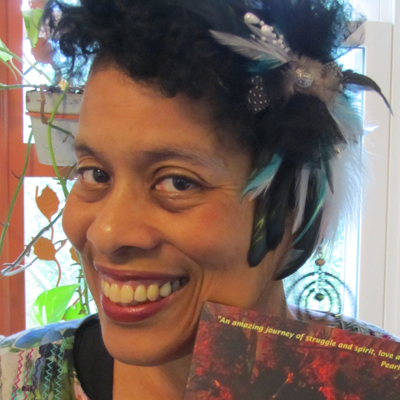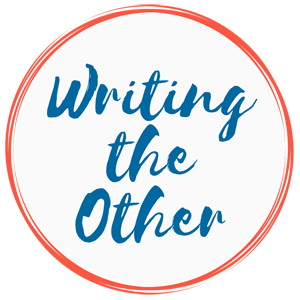Crafting immersive worlds for science fiction, fantasy, and other speculative narratives is a thrilling yet complex endeavor. For creative writers looking to decolonize their fiction and avoid harming marginalized people and cultures, the journey can be especially challenging. Building Inclusive Worlds: Foundations is designed for these conscientious and respectful creators.
Taught by a team of renowned authors and experts including Steven Barnes, Max Gladstone, Andrea Hairston, Nisi Shawl, K. Tempest Bradford, Lauren Jankowski, and Jaymee Goh, you’ll learn foundational worldbuilding skills informed by explorations of ideology, religiosity, cosmology, sociology, and identifying cultural toxicity.
Learn to develop your own theories about society and human behavior through continuous learning and critical thinking. Gain invaluable insights into the underlying ideological structures of storytelling traditions and learn how to interrogate and use or dismantle them effectively. Understand the impact of normalizing harmful cultural traditions in your created worlds and how you can challenge and transform them. Finally, gain essential skills for conducting culturally sensitive research informed by an understanding of colonialist frameworks. The course includes writing exercises designed to help you put what you’ve learned into practice.
Whether you’re a seasoned storyteller or just starting your journey, this course will equip you with an advanced worldbuilding skillset, resources for further study, plus the confidence to create inclusive, immersive, and impactful narrative worlds that resonate with a wide range of readers.
Price: $200
Registration: via Teachable
in partnership with Clarion West
- Course Content
- Prerequisite Text
- Who Should Take This Class?
- Accessibility Statement
- Course Format
- Instructor Bios
Course Content
You Need To have A Theory with Steven Barnes

Good worldbuilding begins with crafting an informed understanding of how our ancestors got here in the first place. From understanding the primal forces that shape human behavior to delving into the underpinnings of society and culture, author Steven Barnes guides writers towards creating believable worlds rooted in research, historical memory, and universal traits. Learn how to delve into history, sociology, and anthropology to develop your own theories about society and human behavior. Through continuous learning and critical thinking, you’ll develop a killer foundation in worldbuilding and writing craft that will empower you to construct complex worlds with confidence and authority, and create narratives with genuine depth and meaning that resonate with readers.
The Bones of the World: Ideology, Genre, and the Foundations of Story with Max Gladstone

Storytellers tell stories in traditions. We write about psychics or magic swords or unicorns because we grew up reading about them. But when we write our own stories, we must not unthinkingly follow in the footsteps of tradition. To gain mastery, we must know what those stories and their forms meant when they were first deployed, and what purpose they serve. Sometimes a storytelling tradition may perpetuate ideologies to which we don’t subscribe—or operate in a deeply damaging way. Also, if we do not understand the ideologies underpinning a story world, we may not understand just why it spoke to us so persuasively. Author Max Gladstone analyzes the underlying ideological structures of worldbuilding and encourages creators to engage with those foundations in their own writing.
Creating Religions and Cosmologies with Andrea Hairston and Nisi Shawl


Cosmology is a model of the universe: how it’s made, what it’s made of, how it works. Religion and spiritual practices are how people live their lives in light of their cosmology. Even if you think your world doesn’t need religion, the cultures in it still need a cosmology. Whether you’re creating cosmologies, religions, or spiritualities from whole cloth or basing them on existing cultures, it’s important to understand why and how they develop and to avoid colonialist and stereotypical foundations in your conceptions. In this interview, Nisi and Andrea discuss non-dominant religions and cosmologies, exploring their roots and fruits and riffing on how their representation looks.
Cultural Appropriation: What It Is and How To Avoid It with Nisi Shawl and K. Tempest Bradford

Avoiding cultural appropriation doesn’t mean restricting your storytelling; it means crafting narratives that respect marginalized cultures and the people in them. In this lecture writers will gain clarity on the crucial distinctions between appropriation, exchange, and influence; knowledge that helps ensure your work doesn’t perpetuate harm on the cultures that influence you while fostering inclusivity in your worlds. Authors Nisi Shawl and K. Tempest Bradford offer answers to common questions and concerns about appropriation and provide invaluable resources to navigate this complex terrain.
Building a World Without Love Hierarchies with Lauren Jankowski

Speculative worlds don’t have to include the same structures and values of our current culture, especially if they’re based on toxic notions of what is “normal” or “correct”. In this lecture, aromantic and asexual author Lauren Jankowski challenges traditional notions of love and relationships, urging writers to imagine worlds that prioritize or normalize platonic bonds instead of only romantic ones. Through an exploration of societal norms and media tropes, Jankowski encourages writers to dismantle toxic love hierarchies and embrace the complexity and power of friendships and familial relationships. She equips writers with the skills, tools, and mindset to craft worlds where love in all its forms is centered and celebrated, empowering you to create inclusive and impactful narratives that resonate with a wider audience.
Historical Research Sans Colonialist Frameworks with Jaymee Goh, PhD

In this lecture, author and editor Jaymee Goh offers valuable insights on the practicalities and pitfalls of historical research with a deep dive into how concepts like colonialism, Orientalism, and whiteness impact historical research. She provides a clear explanation of the unconscious biases and challenges that can arise during research, plus guidance on evaluating various texts and sources for unconscious biases that may arise in both the researcher and the research process. Writers will come away with the tools to conduct thorough and culturally sensitive research, a key aspect of building your own worlds.
Prerequisite Text
This class builds on the information found in the original Writing the Other: A Practical Approach book by Cynthia Ward and Nisi Shawl. We highly suggest you read it before you start class or while you go through the lessons.
Who Should Take This Class?
This course is specifically designed to benefit writers of speculative fiction and narratives — Science Fiction, Fantasy, Horror, and all sub-genres, interstitial genres, and weird fiction — whether you write for Adult, YA, or Middle Grade audiences. This class will benefit writers across multiple mediums — Prose, Playwriting, Screenwriting, Comics/Graphic Novels, Games — at any point in their career from newbie to professional.
Course Format
On demand classes via Teachable can be started at any time. Class content is structured so students move through the curriculum in a way that builds upon the content and knowledge in steps. There is no direct instructor interaction and each student makes their way through the course solo. Students have access to the curriculum for 3 years from date of purchase.
Accessibility Statement
All videos in this course have either corrected English closed captions or a full transcript available. Other material is available as text or PDF. We strive to ensure full accessibility for students who use assistive devices.
Please see Teachable’s accessibility page for more detailed information.
Instructor Bios
Steven Barnes is a New York Times bestselling, award-winning novelist, screenwriter, and creator of the Lifewriting writing course. He has been nominated for Hugo, Nebula, and Cable Ace awards, won an Emmy for the “A Stitch In Time” episode of The Outer Limits, and an NAACP Image Award as co-author of the Tennyson Hardwick mystery series with actor Blair Underwood and his wife, Tananarive Due.
Steven has written three million words of published fiction published in seven languages, including comic books and over 20 novels. His television credits include Baywatch, Stargate SG-1, and Andromeda. In addition to Lifewriting, he teaches webinars on Afrofuturism and Black Horror.
K. Tempest Bradford is an award-winning teacher, media critic, and author of fantasy and science fiction steeped in Black Girl Magic. Her debut middle grade novel, Ruby Finley vs. the Interstellar Invasion, won the 2022 Andre Norton Nebula Award and is nominated for an IGNYTE Award.
Tempest’s short fiction has appeared in multiple anthologies and magazines, including New Suns 2 and Strange Horizons. Her media criticism and essays on diversity and representation have been published at NPR, io9, Ebony Magazine, and more.
She’s the recipient of the 2023 LOCUS Special Award for Developing Diversity in Genre Communities, the 2020 LOCUS Special Award for Inclusivity and Representation Education, and the 2022 Lemonade Award. She’s been nominated for FIYAH Magazine‘s IGNYTE Community and Ember Awards.
Max Gladstone is a Hugo-, Nebula-, and Locus Award winning author who has been thrown from a horse in Mongolia and once wrecked a bicycle in Angkor Wat. He is the author of many books, including Empress of Forever, the Craft Sequence of fantasy novels, and, with Amal El-Mohtar, the internationally bestselling This is How You Lose the Time War.
Jaymee Goh is a writer of fiction, poetry, and academese from Malaysia. Her creative work has been published in Strange Horizons and Lightspeed Magazine, and her non-fiction has appeared in publications such as Steampunk III: Steampunk Revolution and Science Fiction Studies. She co-edited The Sea is Ours: Tales of Steampunk Southeast Asia and edited The WisCon Chronicles Vol. 11: Trials by Whiteness. She is a graduate of the Clarion Science Fiction and Fantasy Writing Workshop and holds a PhD in Comparative Literature from the University of California, Riverside. Her dissertation was on whiteness and multiculturalism in steampunk, a topic she has written and presented on at various conventions across North America, and she blogs about postcoloniality and steampunk at Silver Goggles.
Andrea Hairston is a playwright, novelist, and scholar. She has published three novels: Will Do Magic For Small Change, a finalist for the Mythopoeic, Lambda, and Tiptree Awards, a Massachusetts Must Read, and a New York Times Editor’s pick; Redwood and Wildfire, winner of the Tiptree and Carl Brandon Awards; Mindscape, winner of the Carl Brandon Award. Lonely Stardust, a collection of essays and plays, was published by Aqueduct press. Andrea has received grants from the National Endowment for the Arts, the Rockefeller Foundation, the Ford Foundation, and the Massachusetts Cultural Council. In her spare time, Andrea is the Louise Wolff Kahn 1931 Professor of Theatre and Africana Studies at Smith College and the Artistic Director of Chrysalis Theatre. She bikes at night year round, meeting bears, multi-legged creatures of light and breath, and the occasional shooting star.
Lauren Jankowski, author of Sere from the Green and other books in The Shape Shifter Chronicles series, is the founder of Asexual Artists and co-founder of Pack of Aces. She holds a B.A. in Women and Gender Studies from Beloit College. Her presentation on asexuals in media, “Where are the Asexual Voices,” debuted at C2E2 in 2016.
Nisi Shawl is the author of Everfair, Talk Like A Man, and dozens of short stories, many of which can be found in the James Tiptree, Jr. Award-winning and World Fantasy Award-nominated collection Filter House. Nisi is the co-editor of Stories for Chip and Strange Matings: Octavia E. Butler, Feminism, Science Fiction, and African American Voices. On their own they edited the multiple award-winning anthology New Suns: Original Speculative Fiction by People of Color and they’re currently working on New Suns 2. Nisi is a founding member of the Carl Brandon Society and have served on the board for the Clarion West writing workshop.
Nisi developed the Writing the Other workshop with Cynthia Ward, and has taught it for over a decade in person and online.

